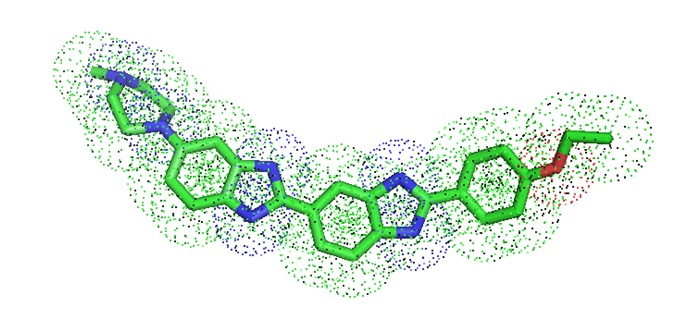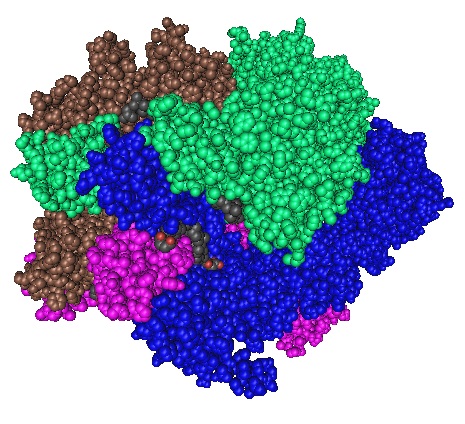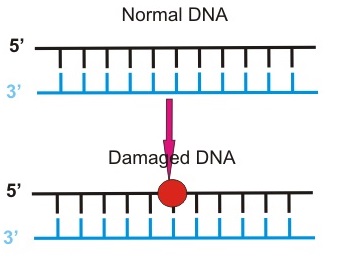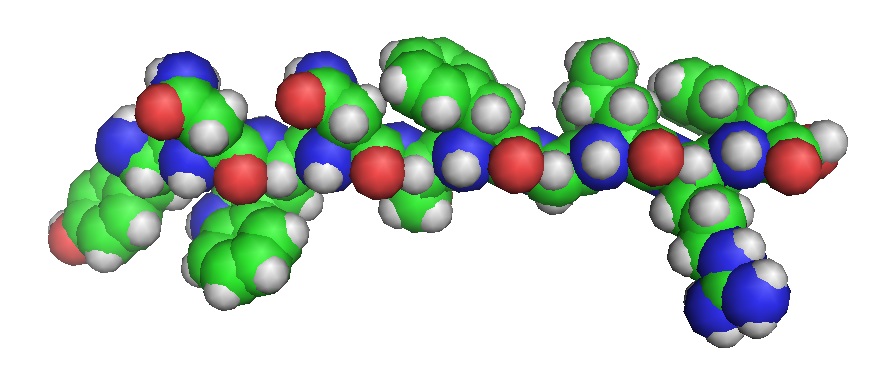|
|
|
Bio-Synthesis Newsletter - January 2020
|
Minor Groove Binder Oligonucleotides
 Synthetic oligonucleotides conjugated to
minor groove binding(MGB) compounds exhibit enhanced DNA affinity which results in improved
hybridization. Correctly designed MGB-oligonucleotides will increase the thermal stability of the resulting duplex. The mismatch
discrimination of short MGB-oligonucleotides
is also enhanced when compared to unmodified oligonucleotides. The tripeptide of dihydropyrrolindole-carboxylate
(CDPI3) is a minor groove binding molecule. 3’- and 5’-CDPI-phosphoramidites can be used for the
conjugation of this MGB to a synthetic oligonucleotide during oligonucleotide synthesis. To create even more stabile oligonucleotide based probes, BNA can be selectively inserted in specific locations.
Synthetic oligonucleotides conjugated to
minor groove binding(MGB) compounds exhibit enhanced DNA affinity which results in improved
hybridization. Correctly designed MGB-oligonucleotides will increase the thermal stability of the resulting duplex. The mismatch
discrimination of short MGB-oligonucleotides
is also enhanced when compared to unmodified oligonucleotides. The tripeptide of dihydropyrrolindole-carboxylate
(CDPI3) is a minor groove binding molecule. 3’- and 5’-CDPI-phosphoramidites can be used for the
conjugation of this MGB to a synthetic oligonucleotide during oligonucleotide synthesis. To create even more stabile oligonucleotide based probes, BNA can be selectively inserted in specific locations.
|
|
Read More
|
|
|
Two proteins are required for taste
 Researchers at UCSF discovered recently that the two receptor proteins TRPM4 and TRPM5 are required for normal signaling in cells with taste receptors. If TRPM5 is missing, mice have a reduced ability to detect taste stimuli. Using live cell imaging combined with behavioral studies the research group could show that the two sodium-selective transient receptor potential (TRP) channel proteins TRPM4 and TRPM5 are involved in taste-evoked signaling. The loss of one of the proteins impairs the ability to taste bitter, sweet, or umami flavors. Researchers at UCSF discovered recently that the two receptor proteins TRPM4 and TRPM5 are required for normal signaling in cells with taste receptors. If TRPM5 is missing, mice have a reduced ability to detect taste stimuli. Using live cell imaging combined with behavioral studies the research group could show that the two sodium-selective transient receptor potential (TRP) channel proteins TRPM4 and TRPM5 are involved in taste-evoked signaling. The loss of one of the proteins impairs the ability to taste bitter, sweet, or umami flavors.
|
|
Read More
|
|
|
Modified oligonucleotides for DNA repair and targeted gene silencing
 Oligonucleotides (ONs) and chemically modified ONs are now routinely used for the control of gene expression in laboratories worldwide. Several classes of ONs allow controlling gene expression in vitro and in vivo experiments. Antisense ONs (AONs), small interfering RNAs (siRNAs), and microRNA-targeting ONs (anti-miRNAs) can be employed containing native nucleic acid bases or modified nucleic acids. In general, modified ONs are more stabile and less prone to degradation in vivo however delivery to the target may be difficult. In addition, specifically modified oligonucleotides can be used for studying DNA repair pathways. Specific phosphoramidites allow for the design and synthesis of oligonucleotides with site-specific lesions useful for the mechanical studies of DNA repair. Oligonucleotides (ONs) and chemically modified ONs are now routinely used for the control of gene expression in laboratories worldwide. Several classes of ONs allow controlling gene expression in vitro and in vivo experiments. Antisense ONs (AONs), small interfering RNAs (siRNAs), and microRNA-targeting ONs (anti-miRNAs) can be employed containing native nucleic acid bases or modified nucleic acids. In general, modified ONs are more stabile and less prone to degradation in vivo however delivery to the target may be difficult. In addition, specifically modified oligonucleotides can be used for studying DNA repair pathways. Specific phosphoramidites allow for the design and synthesis of oligonucleotides with site-specific lesions useful for the mechanical studies of DNA repair.
|
|
Read More
|
|
|
Kisspeptin 54 triggers oocyte maturation
 In vitro fertilization (IVF) treatment is an effective therapy for infertility. However, it can result in a potentially life-threatening complication called ovarian hyperstimulation syndrome (OHSS). A clinical study investigated whether the peptide kisspeptin-54 can be used to effectively and safely trigger oocyte maturation in women undergoing IVF treatment which are at high risk of developing OHSS. Highest pregnancy rates were observed following treatment with 9.6 nmol/kg kisspeptin-54. No woman developed moderate, severe, or critical OHSS. Therefore it was concluded that the treatment with Kisspeptin-54 during IVF treatments is a promising approach to effectively and safely trigger oocyte maturation in women undergoing IVF treatment at high risk of developing OHSS. In vitro fertilization (IVF) treatment is an effective therapy for infertility. However, it can result in a potentially life-threatening complication called ovarian hyperstimulation syndrome (OHSS). A clinical study investigated whether the peptide kisspeptin-54 can be used to effectively and safely trigger oocyte maturation in women undergoing IVF treatment which are at high risk of developing OHSS. Highest pregnancy rates were observed following treatment with 9.6 nmol/kg kisspeptin-54. No woman developed moderate, severe, or critical OHSS. Therefore it was concluded that the treatment with Kisspeptin-54 during IVF treatments is a promising approach to effectively and safely trigger oocyte maturation in women undergoing IVF treatment at high risk of developing OHSS.
|
|
Read More
|
|
|
|
|
Bio-Synthesis, Inc.
800 Mario Court, Lewisville, TX 75057, USA
Toll Free: 800.227.0627 | 1.972.420.8505 (Intl.)
|
|
|
|
|
|